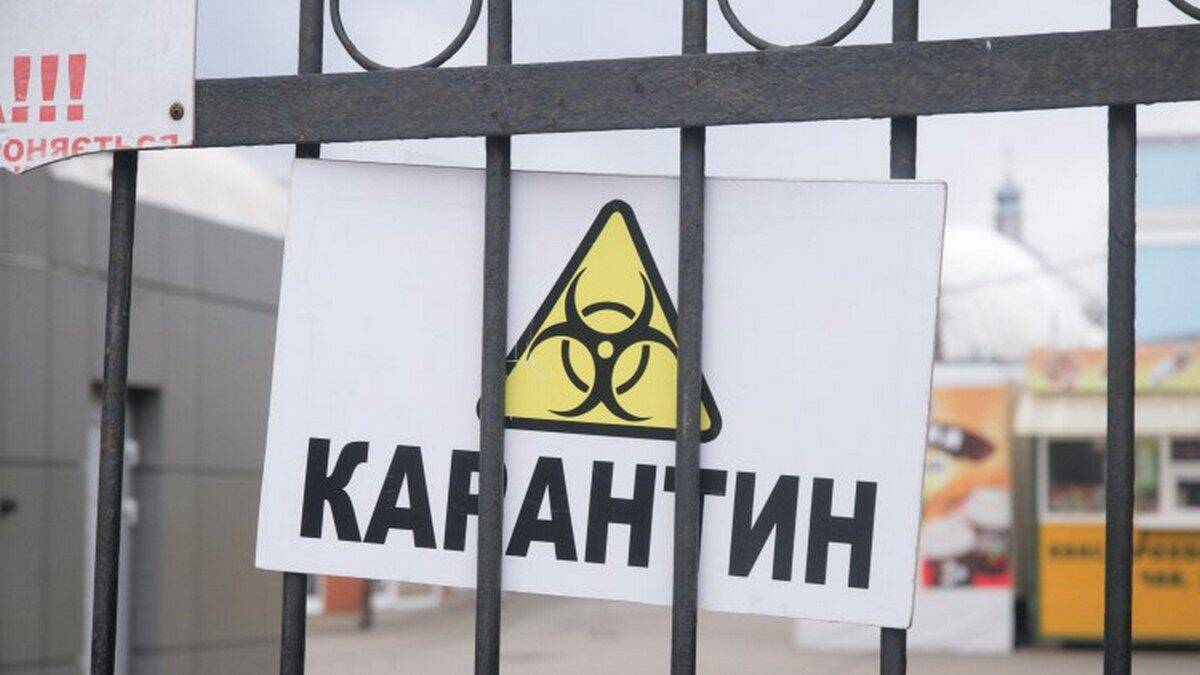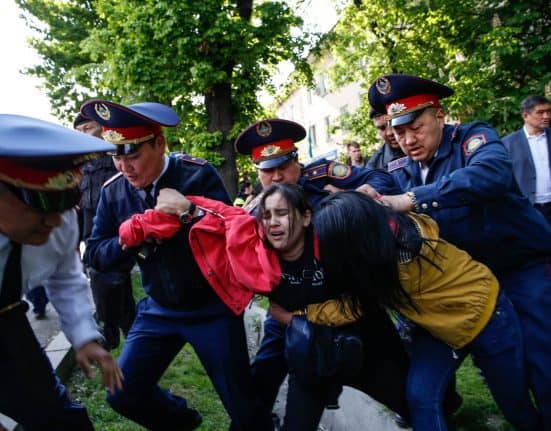The pressure on freedom of expression in the region has more than doubled compared to last year. During four months of 2020, 38 cases of various types of restrictions on the freedom of expression of journalists, bloggers, Internet opinion leaders, and ordinary users were documented. This is evidenced by the analysis of the School of Peacekeeping and Media Technologies in Central Asia (Bishkek, Kyrgyzstan).
Dynamics of the analyzed cases in Kazakhstan, Kyrgyzstan and Uzbekistan shows that the peak of restrictions and censorship came during the period of emergency measures.
Despite the fact that this may have seemed justified and urgent, a number of trends indicate serious threats to freedom of expression, which will continue long after the quarantine has been lifted.
The actions taken by the authorities were used as an excuse to restrict freedom of expression and to suppress critics of the regime. Suppressive government tactics included a variety of pressure methods for freedom of expression: from sanctions for “disseminating knowingly false information in a state of emergency” to censoring content as “contrary to the national mentality of the people”, as well as refusing to accredit journalists to cover the pandemic.
Reporters had access to official information only through online briefings by government agencies. The ban on their movement made it impossible to prepare full-fledged materials and inform the public, making it difficult to understand the crisis and ways to prevent it from recurring.
The director of the School of Peacekeeping and Media Technologies, Inga Sikorskaya, in a comment for ACCA, noted that “the authorities of Central Asian countries need to abandon the broad criminalization of freedom of expression, not to abuse the situation during the pandemic. Disproportionate measures to control journalists and activists can have long-term negative consequences for civil liberties.”
The main blow fell on civic activists and users. Blogger Alnur Ilyashev from Almaty (the southern capital of Kazakhstan) was arrested in April for two months under an article of the Criminal Code for “disseminating false information in a state of emergency”. Zaure Mirzakhodjaeva (a journalist from Chimkent) is under recognizance not to leave. A formal investigation is being conducted against her “for disseminating knowingly false information”. Arman Khasenov (a civic activist) was placed in a pre-trial detention center of SCNS for the video, because of which he is accused of violating the honor and dignity of the first president.
In March, the user Diaz Moldalimov posted a video on a social network in which he urged the authorities to think about the fate of those people who can’t count on the funds allocated to those who lost their jobs or went on forced leave due to quarantine. He was also brought under the article for “disseminating knowingly false information”. At the same time, civil activist and blogger Gennady Krestyansky was reporting live on social networks the situation at roadblocks around the Kazakh city of Almaty, when there was no ban on movement inside the city. However, under administrative law, he was accused of violating the state of emergency.
Three young Uzbek bloggers were arrested for 15 days and fined for “violation of quarantine rules and petty hooliganism”. They made a video near the monument to Amir Temur, and put it on the Internet. In the video, the judge saw “actions expressing willful neglect of the rules of conduct in society”. Antisocial actions consisted in distributing the video near the monument, asking Amir Temur when “the coronavirus will leave Uzbekistan”.
Irina Matvienko, an Uzbek blogger, author of the online project “Don’t be silent”, where she documents and reveals gender-based violence, published a story of a woman who was sexually abused at the age of three. Authorities ordered the removal of this story as contrary to national moral standards.
Among the most egregious facts of violating freedom of expression during the quarantine period in Kyrgyzstan, experts cite online repentance actions that appeared on the Internet, where users, detained by security services, refuted their previous posts and statements in video monologues.
In some cases, they were allegedly charged with spreading fakes, in others – writing provocative posts. After preventive conversations, each of the detainees, according to the SCNS, “repented of spreading false information”.
Over the entire study period, about 28 such users were detained, including the doctor Bektur Apyshev, who maintains a microblog on Twitter. He reported low-quality protective equipment for doctors at his hospital.
Earlier, in January, several Kyrgyz journalists were summoned for interrogation. So, Eldiyar Bakirov and Hamidulla Uzakov from Kloop.kg, according to the statement of the younger brother of the ex-chairman of the State Customs Service of the Kyrgyz Republic, Raiymbek Matraimov, were invited to the Office of Internal Affairs of Osh (the southern capital of Kyrgyzstan). The applicant asked for action against people who allegedly took a video of his house with a drone, thereby violating the “privacy”. Tursunbek Beishenbekov, the editor of the newspaper “Chyndyk”, was interrogated at the Military Prosecutor’s office because of “the official who has been criticized since 2016”. The blogger Elmir Sydymanov was placed in a pre-trial detention center for two months in March “on suspicion of inciting inter-regional animosity under the article 313 of the Criminal Code of the Kyrgyz Republic” because of his post on social networks.
“To soften the crisis in the post-pandemic period, states will need the help of civil society and the media. Therefore, it’s important not to persecute critics, but to open access to information,” said Inga Sikorskaya.







Leave feedback about this